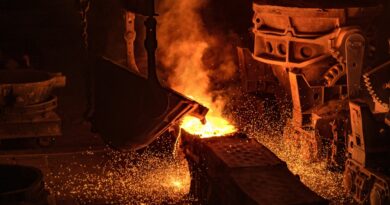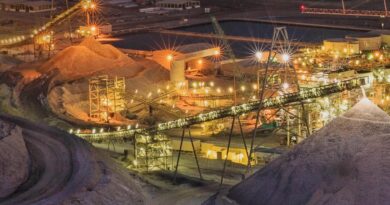Is Putin’s war the fossil war?
Burning oil, gas and coal is causing warming and impacts we need to adapt to. And Russia sells these resources and uses the money to buy weapons. Other countries are dependent upon these fossil fuels, they don’t make themselves free of them. This is a fossil fuel war. It’s clear we cannot continue to live this way, it will destroy our civilization.
The IPCC report, described by António Guterres, the UN secretary general, as an “atlas of human suffering and a damning indictment of failed climate leadership”, is the most comprehensive catalogue yet of the consequences of global heating. Extreme heat and the spread of disease is killing people around the world, about 12 million people are being displaced by floods and droughts each year and the viability of food-producing land is shrinking.
But it is the conflict in Ukraine that has caused western governments to hastily attempt to untangle themselves from a reliance upon Russian oil and gas. The EU is working on a plan to rapidly upscale renewable energy, bolster energy efficiency measures and build liquified natural gas terminals to receive gas from other countries.
Ukraine holds 39 trillion cubic feet (Tcf) of proven gas reserves, ranking 23rd in the world and accounting for about 1% of the world’s total natural gas reserves of 6,923 Tcf. The country also holds 395,000,000 barrels of proven oil reserves as of 2016, ranking 51st in the world and accounting for about 0.0% of the world’s total oil reserves of 1,650,585,140,000 barrels. Most of these fossil fuels are located in the eastern Ukraine.
Joe Biden, meanwhile, has relented to pressure from US lawmakers to ban imports of Russian oil. The ban, the US president said on Tuesday, will deliver a “powerful blow to Putin’s war machine. We will not be part of subsidizing Putin’s war.” Biden said the US will work with Europe on a long-term plan to phase out Russian oil and gas.
The halting of imports was urged in an emotional appeal to members of Congress by Volodymyr Zelenskiy, the Ukrainian president, and is backed by a bipartisan majority of lawmakers. “It’s basically foolish for us to keep buying products and giving money to Putin to be able to use against the Ukrainian people,” said Joe Manchin, the centrist Democratic senator.
“It’s a crude oversimplification to call this a fossil fuel war, that’s a little too glib,” said Jonathan Elkind, an expert in energy policy at Columbia University and a former energy adviser to Barack Obama’s administration. “But it’s an undeniable reality that Russia gets a significant share of its revenues from oil and gas and that America’s gasoline habit contributes towards the global demand for 100m barrels of oil each day.
“Do we want to find ourselves 10 years from now where we’ve bent the curve on oil consumption and emissions towards decarbonization, or do we want to sit there and think ‘where did the last 10 years go?’ If the US isn’t a part of the solution we will put in peril our influence on the world stage and the fate of everyone, both here and around the globe.”
While Europe belatedly attempts to wean itself off Russian gas, efforts to phase down fossil fuels in the US have faltered. Biden’s legislative plan to drastically ramp up renewable energy is moribund in Congress to weaken the administration’s ability to regulate coal-fired power plants.
“The fossil fuel industry’s so-called solution to this crisis is nothing more than a recipe to enable fossil-fueled fascists like Vladimir Putin for years to come,” said Jamal Raad, executive director of Evergreen Action. “As long as our economy is dependent on fossil fuels, we will be at the mercy of petro-dictators who wield their influence on global energy prices like a weapon.




